
National Co-op & WIL Week Profile #5: Pascale Walters
Third-year Biomedical Engineering co-op student Pascale Walters is writing code to analyze genomic data to characterize cancer evolution.

Third-year Biomedical Engineering co-op student Pascale Walters is writing code to analyze genomic data to characterize cancer evolution.
By University RelationsMarch 19 – 23 is National Co-op week and work-integrated learning (WIL) week, and the University of Waterloo is celebrating its students’ co-op and WIL opportunities.
Our final feature focuses on third-year Biomedical Engineering student Pascale Walters who is working as a scientific programmer in the Shah Lab in the Department of Molecular Oncology at BC Cancer in Vancouver, BC. Walter’s role is to write code that is used to analyze genomic data to characterize cancer evolution, while working on a pipeline to manipulate raw genomic data into a form that can be visualized by researchers. This is Walters’ fifth co-op. Her first work-terms was at Waterloo’s Medella Health, a group working to develop a smart contact lens that would help patients with diabetes monitor their blood glucose levels.
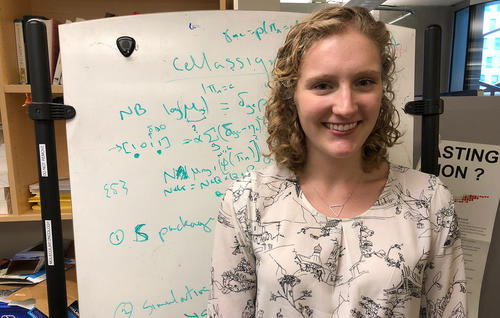
Q: What has your co-op work term taught you about yourself and what you might pursue in your future?
A: This co-op work term has taught me that I am able to manage multiple responsibilities at once. I have been given the opportunity to participate in many projects, from data analysis to machine learning, which has allowed me to learn to balance these projects and discover what I am interested in for future pursuits. I am definitely interested in exploring the intersection of computation and health care in the future. I think that cancer research is also very interesting because it can have such a large impact on many lives.
Q: What are you most proud of when it comes to your co-op?
A: When it comes to co-op, would say that I am most proud of my ability to adapt to new situations. All my co-op work terms so far have been at different companies, that each have different objectives, workplace cultures and technologies. I’m happy to say that I have risen to the challenge and learned many new skills along the way.
Q: What is the biggest difference between being a student and a co-op?
A: Definitely the amount of free time. It’s nice to have a break from homework and have time to hang out, watch new shows, be introspective, play new sports and learn to cook new dishes.
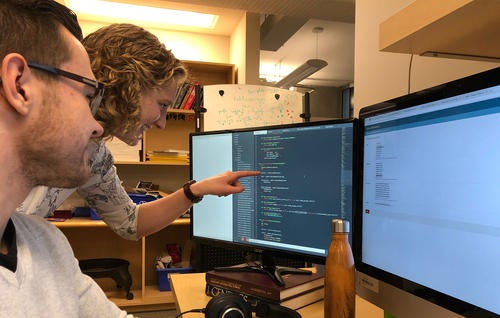
Q: Anything embarrassing happen while on a work term?
A: During my last co-op term, I was working in the Medical Physics department at Health Sciences North in Sudbury, Ontario. I had the opportunity to observe the implantation of radioactive particles in a patient for prostate brachytherapy. This procedure takes place in a sterile operating room where proper protocols must be followed to ensure that all devices that have contact with the patient are kept clean. Before the procedure started, I was trying to be helpful and grabbed the transrectal ultrasound device with my bare hands, with the thought that I could make more room for the physician to work. Unfortunately, this was not the correct thing to do and it required that the device be completely sterilized again before the procedure could begin.
Q: What was it like moving away from home and having to resettle in an unfamiliar place?
A: For this work term, I moved from my home in Toronto to my work in Vancouver. I had never actually visited the city for an extended period of time before, so it was a pretty new experience. The biggest change for me was adjusting to the amount of rain Vancouver gets in the winter, but it makes me appreciate sunny days so much more now. It was also tough adjusting to life in a new city, but it has afforded me the opportunity to discover new places and experiences.
Q: What has been one of your most challenging co-op experiences and how did you overcome it?
A: The most challenging aspect of every co-op term for me is overcoming the initial nervousness and feelings of being overwhelmed that come with a new work environment. It’s pretty scary to show up on the first day of work not knowing much about the expectations of the workplace, but asking lots of questions and being receptive to feedback have been helpful as I’m settling in.
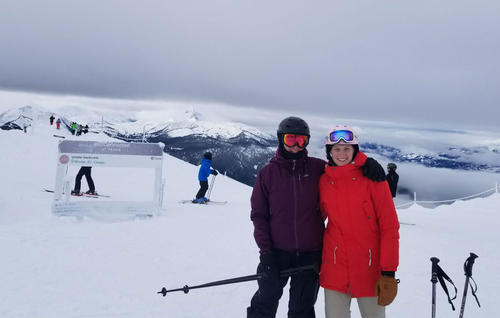
Q: What was your co-op interview process like and what tips would you give upcoming students?
A: The co-op interview process is always a challenge, as it involves balancing job applications, class time, midterms, interview time slots, homework and interview preparation. My advice for upcoming students is to not get consumed by the whole interview process and school and take time for yourself. It’s important to recognize that the co-op experience should be an opportunity for learning and personal growth.
Q: What has been your best co-op perk or memory?
My best co-op memories all come from meeting new people and exploring new places. From learning to snowboard in Vancouver to eating delicious food at the Sudbury Blueberry Festival, I am grateful for the opportunities to do new things.
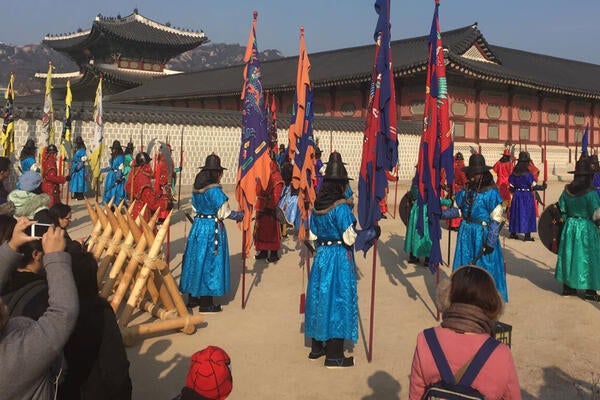
Read more
Second-year mathematical physics student heads to South Korea for unforgettable co-op experience.
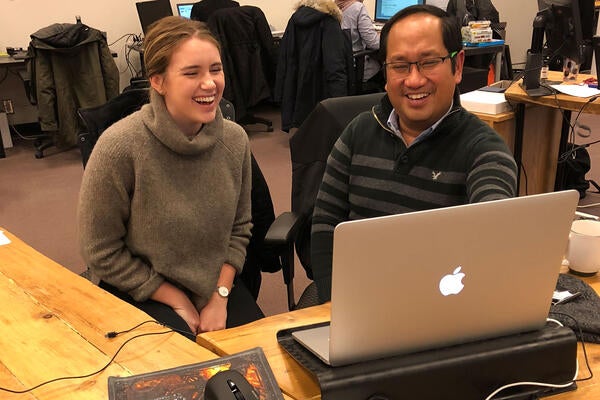
Read more
Third-year Environment, Resources and Sustainability student Hannah Dubber kicks off her co-op in Kitchener as Program Coordinator with Sustainable Waterloo Region.
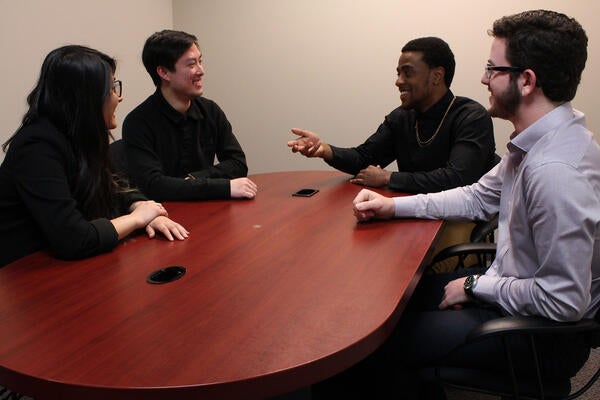
Read more
Third-year Honours Arts student Aaron Cole excels in Waterloo's new work-integrated learning and experiential education certificate program, EDGE.
The University of Waterloo acknowledges that much of our work takes place on the traditional territory of the Neutral, Anishinaabeg, and Haudenosaunee peoples. Our main campus is situated on the Haldimand Tract, the land granted to the Six Nations that includes six miles on each side of the Grand River. Our active work toward reconciliation takes place across our campuses through research, learning, teaching, and community building, and is co-ordinated within the Office of Indigenous Relations.